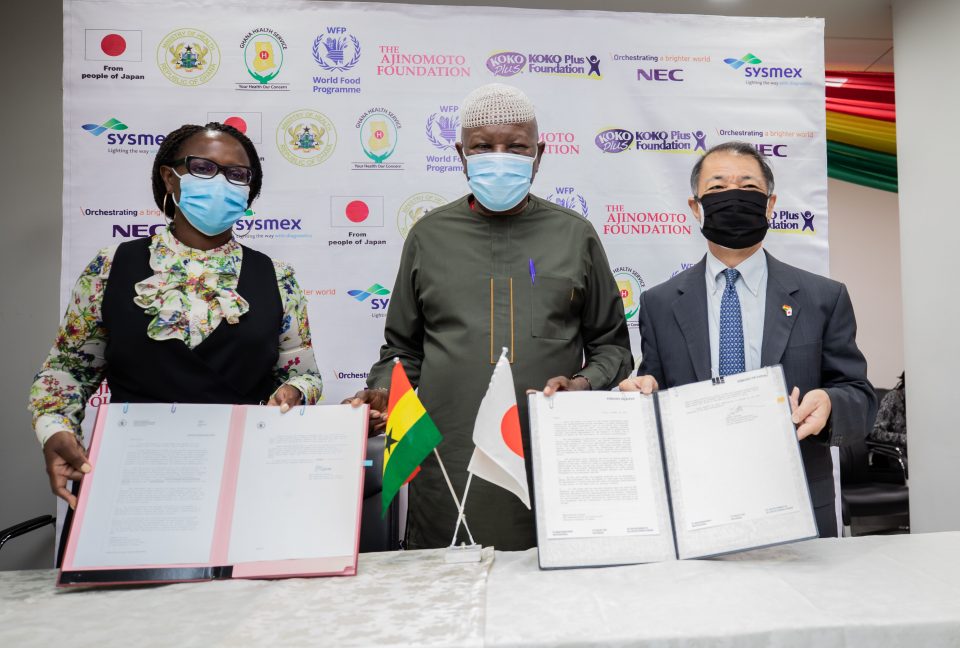The United Nations World Food Programme (WFP) welcomes a contribution of JPY499 million (USD 4.5 million) from the Government of Japan, for a public-private partnership project which aims to make quality nutrition and health services available to 250,000 people in Ghana.
In collaboration with the Ministry of Health and the Ghana Health Service, WFP will partner with three private sector Japanese firms, The Ajinomoto Foundation (TAF)/KOKO Plus Foundation (KPF), NEC Corporation and Sysmex Corporation, to produce nutritious foods and micronutrient supplements and carry out nutrition education for the most vulnerable women, children and adolescent girls in rural food-insecure areas of the country.
The partnership is key to addressing food and nutrition needs and ultimately achieving Zero Hunger
“Partnership is key to addressing food and nutrition needs and ultimately achieving Zero Hunger,” said Anna Mukiibi-Bunnya, WFP Representative ad interim in Ghana. “Thanks to the continued generosity of the People of Japan, we will collaborate more with public and private sector partners in order to generate innovative hunger solutions in Ghana.”
In one district in the Northern region, 7, 500 vulnerable pregnant women and nursing mothers, children and adolescent girls, will receive nutrition education and counselling, as well as nutritious foods. The women will also be enrolled in activities that will enable them to earn more money and sustain their ability to continue buying locally produced nutritious foods when the project ends. Additionally, 250,000 people in 90 districts will continuously be educated and counselled on good nutrition practices under a widely rolled out social and behaviour change communication component.
“This project is fully aligned with the Government of Japan’s priority in universal health care and the Africa Health and Well-being Initiative (AfHWiN) as featured in TICAD VII”, said Tsutomu Himeno, Japanese Ambassador to Ghana during the project signing ceremony. “The Government of Japan will continue to support such collaborations to address the burden of malnutrition in Ghana as a whole. And it is the wish of the people and the Government of Japan that this project will make a valuable contribution in the areas of nutrition and health coverage in Ghana.”
Overall, in Ghana, WFP supports the Government to implement innovative hunger solutions including a smallholder farmer e-commerce project, social protection programmes such as school feeding as well as livelihood programmes for People Living with HIV and recipients of nutrition interventions.


